
- This event has passed.
New Orleans Science Editing Workshop
September 10, 2019 - September 11, 2019

The Knight Science Journalism fellowship program at MIT, thanks to a generous grant by the Los Angeles-based Kavli Foundation, hosted an expenses-covered science editing workshop Sept. 10 and 11, 2019, at the Roosevelt Hotel in New Orleans. This workshop brought together two-dozen journalists to explore the challenges, ethics, and opportunities in editing outstanding science stories and integrating science into daily journalism. Previous workshops have been held in Austin, Toulouse, France, San Francisco, and Boston. Future workshops are currently being planned.
The workshop was held at New Orleans’ historic Roosevelt Hotel in the French Quarter and took place immediately preceding the Online News Association’s annual conference, also in the Crescent City. The goal of the workshop was to help editors deepen their understanding of science to make their journalism better, to find stories they may be overlooking, and to provide greater context and nuance to stories they’re already covering.
Schedule
The workshop was led by a superlative group of science journalists (bios below). It opened on the afternoon of Tuesday, Sept. 10 with three sessions. The first, focused on better understanding how science works, was led by Dan Vergano, science reporter for BuzzFeed News. The second session looked at how to tell compelling science stories for a general audience. That session was led by Nancy Shute, editor-in-chief of Science News. The afternoon wrapped up with a session with Nancy Rabalais, professor of oceanography and coastal sciences at Louisiana State University and a MacArthur Foundation Fellow, about the effects of climate change.
On Wednesday, Sept. 11, Jessica Ancker, associate professor in healthcare policy & research at Cornell University, kicked off the day with a session to help journalists make sense of science data. She was followed by a session on responsible health care journalism with Shannon Brownlee, senior vice president of the Lown Institute. After lunch, attendees heard from Mark Schleifstein, environment reporter and Pulitzer Prize winner at The Times-Picayune, who discussed how a science perspective can inform policy coverage. Finally, the day concluded with a session featuring Gina McCarthy, former EPA Administrator and current Professor of the Practice of Public Health in the Department of Environmental Health at Harvard T.H. Chan School of Public Health and the Director of the Center for Climate, Health and the Global Environment. She discussed how climate change is a health issue, and how that framing resonates with the public.
Attendees
The workshop was for U.S. journalists only, with a special focus on editors working in the Gulf region. We covered reasonable travel expenses, two nights at the Roosevelt Hotel, meals, and an ONA conference pass (though accommodations during ONA were not included).
For more Information
For more details regarding the program, please email science editing workshop organizer Joshua Hatch.
More about the Workshop Faculty
We had an outstanding lineup of faculty for this workshop. Their biographies are below:
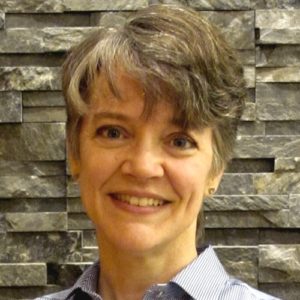 Jessica Ancker’s first career was in journalism, and her second is in science and public health. After working as a reporter for several newspapers and the Associated Press, she returned to graduate school to earn a master’s degree in biostatistics and a PhD in biomedical informatics. She is currently conducting research funded by the National Institutes of Health on better ways to explain numbers to patients making important medical decisions. Dr. Ancker also has a long track record of combining her old career with her new one by teaching statistics for journalists, including at Columbia Journalism School and the Knight Science Journalism Fellowship Program at MIT.
Jessica Ancker’s first career was in journalism, and her second is in science and public health. After working as a reporter for several newspapers and the Associated Press, she returned to graduate school to earn a master’s degree in biostatistics and a PhD in biomedical informatics. She is currently conducting research funded by the National Institutes of Health on better ways to explain numbers to patients making important medical decisions. Dr. Ancker also has a long track record of combining her old career with her new one by teaching statistics for journalists, including at Columbia Journalism School and the Knight Science Journalism Fellowship Program at MIT.
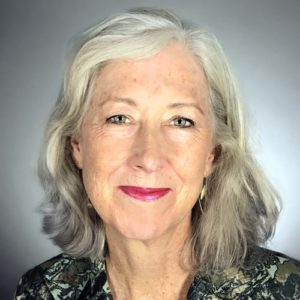 Shannon Brownlee is Senior Vice President of the Lown Institute, a non-partisan, public policy think tank and civic enterprise based in Boston, MA. She is a Co-Founder of the Right Care Alliance, a network of activist patients, clinicians, and community leaders devoted to organizing a broad based movement for a radically better health care system. Before joining the Lown Institute, Brownlee served as acting director of the health policy program at the New America Foundation. While at New America, she published the groundbreaking book Overtreated: Why Too Much Medicine is Making Us Sicker and Poorer, which was named the best economics book of 2007 by the New York Times. Before her time at New America, Brownlee was a senior editor at US News and World Report and Discover Magazine, and was named one of “four writers who changed the world” by the World Congress of Science Journalists. She is the author of several peer-reviewed papers in medical journals, and has published numerous articles and essays in such outlets as The Atlantic, New York Times Magazine, Washington Post, Times of London, Time, New Republic, BMJ, The Lancet, and Health Affairs. From 2015-17 Brownlee was a visiting scientist at the Harvard T.H. Chan School of Public Health. From 2014-16 she was an editor of the “Less is More” section of JAMA Internal Medicine. From 2011-14 she was a lecturer at the Dartmouth Institute for Health Policy and Clinical Practice. She is currently a member of the boards of the Robert Graham Center of the American Academy of Family Practice and FamiliesUSA. Brownlee holds a master’s degree in marine science from the University of California, Santa Cruz.
Shannon Brownlee is Senior Vice President of the Lown Institute, a non-partisan, public policy think tank and civic enterprise based in Boston, MA. She is a Co-Founder of the Right Care Alliance, a network of activist patients, clinicians, and community leaders devoted to organizing a broad based movement for a radically better health care system. Before joining the Lown Institute, Brownlee served as acting director of the health policy program at the New America Foundation. While at New America, she published the groundbreaking book Overtreated: Why Too Much Medicine is Making Us Sicker and Poorer, which was named the best economics book of 2007 by the New York Times. Before her time at New America, Brownlee was a senior editor at US News and World Report and Discover Magazine, and was named one of “four writers who changed the world” by the World Congress of Science Journalists. She is the author of several peer-reviewed papers in medical journals, and has published numerous articles and essays in such outlets as The Atlantic, New York Times Magazine, Washington Post, Times of London, Time, New Republic, BMJ, The Lancet, and Health Affairs. From 2015-17 Brownlee was a visiting scientist at the Harvard T.H. Chan School of Public Health. From 2014-16 she was an editor of the “Less is More” section of JAMA Internal Medicine. From 2011-14 she was a lecturer at the Dartmouth Institute for Health Policy and Clinical Practice. She is currently a member of the boards of the Robert Graham Center of the American Academy of Family Practice and FamiliesUSA. Brownlee holds a master’s degree in marine science from the University of California, Santa Cruz.
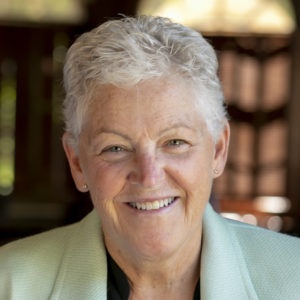
Gina McCarthy is Professor of the Practice of Public Health in the Department of Environmental Health at Harvard T.H. Chan School of Public Health and the Director of the Center for Climate, Health and the Global Environment. In this capacity, she leads the development of the School’s strategy in climate science, health, and sustainability; strengthens the climate science and health curriculum, and liaises with climate science leaders across the University.
McCarthy has been a leading advocate for common-sense strategies to protect public health and the environment for more than 30 years. She served under President Barack Obama as the 13th Administrator of the EPA from 2013–2017. Her tenure as EPA Administrator heralded a paradigm shift in national environmental policy, expressly linking it with global public health. She led EPA initiatives that cut air pollution, protected water resources, reduced greenhouse gases, and strengthened chemical safety to better protect more Americans, especially the most vulnerable, from negative health impacts. McCarthy signed the Clean Power Plan, which set the first-ever national standards for reducing carbon emissions from existing power plants, underscoring the country’s commitment to domestic climate action and spurring international efforts that helped secure the Paris Climate Agreement. McCarthy worked with the United Nations and the World Health Organization on a variety of efforts and represented the U.S. on global initiatives to reduce high-risk sources of pollution.
 Nancy N. Rabalais is a Professor and the Shell Endowed Chair in the Department of Oceanography and Coastal Sciences at Louisiana State University. Her research interests include the dynamics of oxygen-depleted coastal waters, ocean acidification, interactions of large rivers with the coastal ocean, estuarine and coastal eutrophication, benthic ecology, fate and effects of contaminants, and science policy. She is an author of three books, 34 book chapters, and over 130 peer-reviewed publications. She graduated from The University of Texas at Austin with a Ph.D. in Zoology (minor, Marine Studies) in 1983.
Nancy N. Rabalais is a Professor and the Shell Endowed Chair in the Department of Oceanography and Coastal Sciences at Louisiana State University. Her research interests include the dynamics of oxygen-depleted coastal waters, ocean acidification, interactions of large rivers with the coastal ocean, estuarine and coastal eutrophication, benthic ecology, fate and effects of contaminants, and science policy. She is an author of three books, 34 book chapters, and over 130 peer-reviewed publications. She graduated from The University of Texas at Austin with a Ph.D. in Zoology (minor, Marine Studies) in 1983.
Dr. Rabalais is active in state, national and international working groups, panels, and advisory boards. She currently serves on the University-National Oceanographic Laboratories Fleet Improvement Committee and Board of Directors of the Gulf of Mexico Coastal Ocean Observing System. She has served on eight National Research Committees for the National Academies and is a past member and chair of the Ocean Studies Board. She is a past member and chair of the National Sea Grant Advisory Board, and past president of the Coastal and Estuarine Federation. She is an American Association for the Advancement of Science Fellow, an American Geophysical Union Fellow, an Aldo Leopold Leadership Program Fellow, a National Associate of the National Academies of Science. She was awarded the Clarke Prize of the National Water Resources Institute, the Ruth Patrick Award of the American Society of Limnology and Oceanography, the B. K. Ketchum award from Woods Hole Oceanographic Institution, the Blasker Award for Environmental Science and Engineering, shared with R. E. Turner, a Rachel Carson Lectureship for the American Geophysical Union, the Benchley award, the Heinz award, and in 2012 was named a MacArthur Fellow.
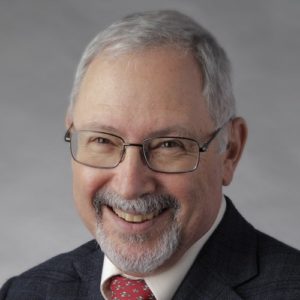 Mark Schleifstein is the environment reporter for NOLA.com | The Times-Picayune, and a member of its Louisiana Coastal Reporting Team. Schleifstein’s reporting on Katrina was among the newspaper’s stories honored with 2006 Pulitzer Prizes for Public Service and Breaking News Reporting. He’s the co-author of the 2006 book “Path of Destruction: The Devastation of New Orleans and the Coming Age of Superstorms,” about Katrina. He’s also co-author of the 2002 series, “Washing Away,” which warned that much of New Orleans could be flooded by hurricane storm surge, and won awards from the National Hurricane Conference and the American Society of Civil Engineers. He also was co-author of the 1996 series, “Oceans of Trouble: Are the World’s Fisheries Doomed?”, which won the 1997 Pulitzer Prize for Public Service. Two other series he co-authored were finalists for the Pulitzer Prize: “Home Wreckers: How the Formosan termite is devastating New Orleans,” published in 1998, finalist for national reporting; and “Louisiana in Peril,” published in 1991, finalist for explanatory journalism. In 2011, he was honored by the Press Club of New Orleans with its Lifetime Achievement Award, and is now a member of its board of directors. Schleifstein is on the board of advisers of SciLine, a service of the American Association for the Advancement of Science that provides journalists links to credible scientists on demand and on deadline. He’s a founding member of the Society of Environmental Journalists and a former member of its board of directors.
Mark Schleifstein is the environment reporter for NOLA.com | The Times-Picayune, and a member of its Louisiana Coastal Reporting Team. Schleifstein’s reporting on Katrina was among the newspaper’s stories honored with 2006 Pulitzer Prizes for Public Service and Breaking News Reporting. He’s the co-author of the 2006 book “Path of Destruction: The Devastation of New Orleans and the Coming Age of Superstorms,” about Katrina. He’s also co-author of the 2002 series, “Washing Away,” which warned that much of New Orleans could be flooded by hurricane storm surge, and won awards from the National Hurricane Conference and the American Society of Civil Engineers. He also was co-author of the 1996 series, “Oceans of Trouble: Are the World’s Fisheries Doomed?”, which won the 1997 Pulitzer Prize for Public Service. Two other series he co-authored were finalists for the Pulitzer Prize: “Home Wreckers: How the Formosan termite is devastating New Orleans,” published in 1998, finalist for national reporting; and “Louisiana in Peril,” published in 1991, finalist for explanatory journalism. In 2011, he was honored by the Press Club of New Orleans with its Lifetime Achievement Award, and is now a member of its board of directors. Schleifstein is on the board of advisers of SciLine, a service of the American Association for the Advancement of Science that provides journalists links to credible scientists on demand and on deadline. He’s a founding member of the Society of Environmental Journalists and a former member of its board of directors.
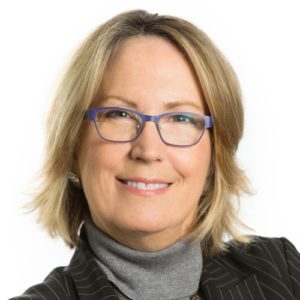 Nancy Shute leads Science News magazine, which was founded in 1921 by newspaper magnate E.W. Scripps to improve the quality of science journalism for the general public. Today, Science News continues to experiment with new forms of journalism and new business models for nonprofit news. The media group includes the ScienceNews.org daily news site; Science News for Students, a digital magazine for people ages 9 and up; and Science News in High Schools, which delivers the magazine to students and teachers at almost 5,000 high schools. Prior to joining Science News, Shute was an editor and on-air reporter for NPR’s Science Desk, and assistant managing editor for science and technology at US News & World Report. As a Fulbright scholar, she founded the first independent newspaper in Kamchatka, Russia. And she’s proud to say she started out covering fires and fatals for local news outlets in Boise, Idaho.
Nancy Shute leads Science News magazine, which was founded in 1921 by newspaper magnate E.W. Scripps to improve the quality of science journalism for the general public. Today, Science News continues to experiment with new forms of journalism and new business models for nonprofit news. The media group includes the ScienceNews.org daily news site; Science News for Students, a digital magazine for people ages 9 and up; and Science News in High Schools, which delivers the magazine to students and teachers at almost 5,000 high schools. Prior to joining Science News, Shute was an editor and on-air reporter for NPR’s Science Desk, and assistant managing editor for science and technology at US News & World Report. As a Fulbright scholar, she founded the first independent newspaper in Kamchatka, Russia. And she’s proud to say she started out covering fires and fatals for local news outlets in Boise, Idaho.
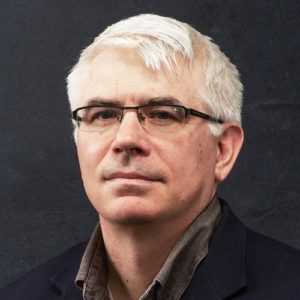 Dan Vergano is a reporter at the BuzzFeed News bureau in Washington DC, where he covers the scientific angles of national news stories. He was previously a senior writer/editor at National Geographic and a science reporter at USA TODAY. Dan was a 2007-8 Nieman Fellow at Harvard, where he focused on the politics of stem cells, climate change and evolution. He holds a B.S. in aerospace engineering and an M.A. in science and technology policy.
Dan Vergano is a reporter at the BuzzFeed News bureau in Washington DC, where he covers the scientific angles of national news stories. He was previously a senior writer/editor at National Geographic and a science reporter at USA TODAY. Dan was a 2007-8 Nieman Fellow at Harvard, where he focused on the politics of stem cells, climate change and evolution. He holds a B.S. in aerospace engineering and an M.A. in science and technology policy.

